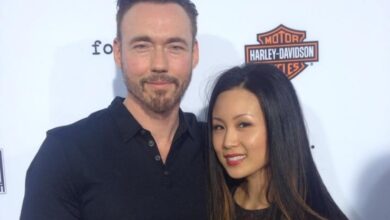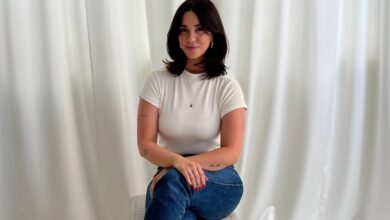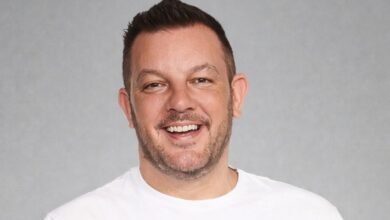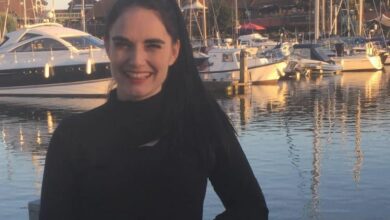Rebecca Morelle: The Voice of Science at BBC News
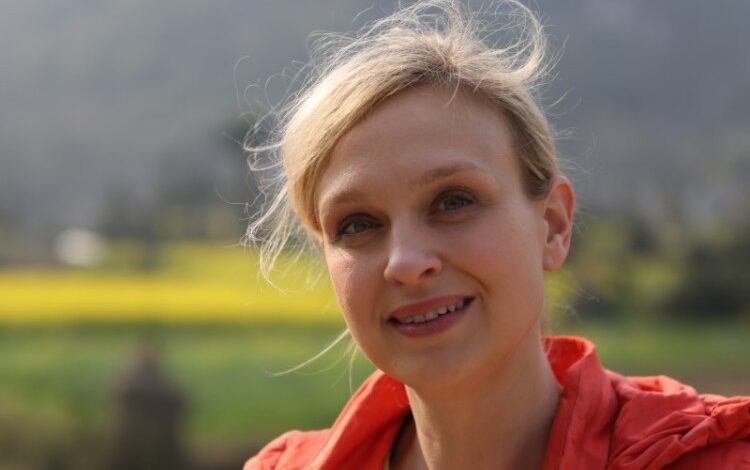
Rebecca Morelle stands as one of Britain’s most respected science journalists, renowned for her insightful and accessible coverage of complex scientific issues. As the Science Editor at BBC News, she bridges the gap between scientific discovery and public understanding. Her career, defined by precision, curiosity, and communication excellence, has made her a familiar face and trusted voice on global platforms. From space missions to medical innovations, Rebecca Morelle’s reporting embodies the essence of modern science communication — credible, clear, and captivating.
Early Life and Education of Rebecca Morelle
Rebecca Sabrina Morelle was born and raised in the United Kingdom. From an early age, she showed a fascination with science and storytelling — two passions that would later define her career. She attended Goffs Academy, where she excelled academically and developed her foundational interest in chemistry.
Pursuing her scientific ambitions, she enrolled at the University of Oxford, one of the world’s leading institutions. In 2001, she graduated with a Master of Chemistry (MChem) degree, achieving First-Class Honours. Her strong analytical mindset and academic excellence provided her with the technical depth to understand and communicate scientific concepts effectively. This blend of scientific literacy and narrative skill became her trademark as a journalist.
Early Career – From Science Media to BBC
Before joining the BBC, Rebecca Morelle began her career at the Science Media Centre in London, serving as a Press Officer from 2001 to 2005. In this role, she learned the nuances of translating complex research into public-friendly information — a skill essential for any science communicator. Her work connected journalists with leading researchers, helping ensure accurate reporting of scientific topics in the British media.
Her entry into journalism was a natural progression. In 2006, she joined BBC News as a Science, Technology, and Health Reporter, quickly establishing herself as a dynamic and knowledgeable voice in the newsroom. She then became a Science Video Journalist from 2007 to 2012, producing visual content that explained emerging discoveries to a broad audience.
BBC Career Growth – From Global Correspondent to Science Editor
Rebecca Morelle’s BBC career spans over a decade of science reporting across continents. Her ability to communicate technical information with clarity and empathy made her one of the most recognisable figures in the BBC’s global science coverage.
Global Science Correspondent (2013–2021)
In 2013, she was promoted to Global Science Correspondent, a position that allowed her to report on scientific events and discoveries from around the world. She covered stories ranging from NASA missions, climate change research, and volcanic eruptions, to medical and environmental breakthroughs. Her storytelling combined journalistic accuracy with visual storytelling — a hallmark of BBC News science coverage.
Rebecca’s role involved travelling to the frontlines of discovery — from CERN’s particle accelerator in Switzerland to Antarctic research stations. Her work often highlighted not only the scientific achievements but also their human, ethical, and environmental implications. Her calm, confident delivery and scientifically informed explanations made her a trusted source for global audiences.
Science Editor (2021–Present)
In December 2021, Rebecca Morelle was appointed BBC News Science Editor, succeeding veteran journalist David Shukman. As Science Editor, she leads the BBC’s global science coverage, shaping editorial direction and ensuring accuracy across all platforms — television, radio, and digital. Her leadership role reflects her deep commitment to journalistic integrity and science communication excellence.
Under her editorship, the BBC has expanded its focus on emerging technologies, climate science, and health innovation. She continues to appear regularly on BBC World News, BBC News Channel, and digital features, explaining everything from the James Webb Space Telescope to AI ethics and pandemic research.
Rebecca Morelle’s Journalism Style and Impact
Rebecca Morelle’s journalism is defined by clarity, compassion, and credibility. She simplifies complex scientific principles without diluting their meaning, making her reports accessible to general audiences and experts alike. Her focus extends beyond just the “what” of science — she explores the why and how, ensuring that viewers grasp both the significance and context of discoveries.
Her coverage often emphasises:
-
Climate and environmental issues, such as carbon reduction and biodiversity.
-
Space exploration, including Mars missions and astronomical discoveries.
-
Health and medical research, focusing on innovation and public impact.
-
Technology and ethics, exploring AI, robotics, and their societal implications.
Her storytelling reflects a commitment to bridging the gap between science and society — a mission increasingly crucial in an era of misinformation.
Personal Life of Rebecca Morelle
Rebecca Morelle maintains a low public profile regarding her personal life. She is known to value privacy, focusing her online presence primarily on professional achievements. However, in a 2017 Twitter post, she shared news of her pregnancy, thanking well-wishers and mentioning she was “eight weeks to go” before giving birth. This indicates she welcomed her child in early 2018.
No verified public information is available regarding her husband or partner, as she has chosen not to disclose family details publicly. Her professional accounts remain dedicated to science communication and BBC reporting.
Social Media Presence
Rebecca Morelle is highly active on X (formerly Twitter) under the verified handle @BBCMorelle, where she shares BBC Science stories, field updates, and insights from ongoing research coverage. With over 23,000 followers, she is among the most followed BBC science journalists. Her posts often blend wit and scientific relevance, engaging audiences from both academia and general media.
She is not confirmed to have an official Instagram account, and most personal details are not shared publicly. Her online presence reflects professionalism, integrity, and focus on credible science communication.
Awards, Recognition, and Influence
While Rebecca Morelle is modest about personal accolades, her impact is reflected in the BBC’s reputation for rigorous science journalism. Her contributions to broadcast and digital storytelling have inspired new generations of journalists and science communicators.
Her leadership at BBC News ensures balanced reporting on controversial topics like genetic engineering, space ethics, and artificial intelligence. She also advocates for gender equality in science media, often highlighting women scientists and amplifying diverse voices in STEM.
Her commitment to equal representation, ethical reporting, and public trust in science continues to define her professional identity.
Rebecca Morelle’s Legacy and Future Vision
Rebecca Morelle’s career embodies the modern science journalist’s role — an interpreter between discovery and society. Her Oxford background gives her the scientific literacy needed to evaluate research critically, while her media experience enables her to communicate it effectively.
As the world faces global challenges like climate change, pandemics, and technological disruption, Rebecca Morelle’s voice at BBC News remains crucial in ensuring that science is reported responsibly and understood widely. She continues to influence public dialogue by turning complex research into compelling, human stories that inspire curiosity and awareness.
Conclusion
Rebecca Morelle represents the best of British journalism — intelligent, balanced, and deeply engaged with the world of science. From her early career at the Science Media Centre to leading the BBC’s global science coverage, she has shown how storytelling can illuminate the most intricate aspects of discovery. Her professionalism, insight, and passion for truth make her one of the most trusted figures in modern journalism.
FAQs
1. Who is Rebecca Morelle?
Rebecca Morelle is a British science journalist and the current Science Editor at BBC News, known for her coverage of space exploration, climate science, and technology innovations.
2. What is Rebecca Morelle’s educational background?
She graduated with a Master of Chemistry (MChem) degree with First-Class Honours from the University of Oxford in 2001 and completed her early education at Goffs Academy.
3. How long has Rebecca Morelle worked at the BBC?
Rebecca has been with BBC News for over 17 years, starting in 2006 and becoming Science Editor in December 2021 after serving as Global Science Correspondent.
4. Is Rebecca Morelle married?
Rebecca Morelle keeps her personal life private. While she mentioned expecting a child in 2017, she has not publicly disclosed details about her husband or partner.
5. What is Rebecca Morelle’s social media handle?
Her verified account on X (formerly Twitter) is @BBCMorelle, where she shares BBC science stories, research insights, and updates from the field.
